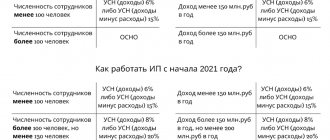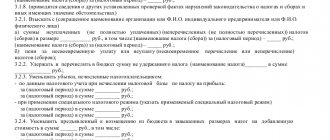Home / Articles / Extension of the deadline for conducting an on-site tax audit. Reasons and order
Published: 07/06/2018
Tax legislation stipulates that the continuous period of on-site audit of a company is 2 months. This period can be increased to 4 or 6 months. But in any case, the maximum period for an on-site inspection of a taxpayer enterprise, taking into account the extension, can be only 12 months.
The start of the period is the date of the decision to conduct the inspection. End – the date on which the inspectors prepare the final certificate based on the results of the inspection.
It is important to note that the period of the on-site inspection includes the time during which the inspectors are directly on the premises, on the territory of the company being inspected. Including the time for conducting an inventory, examining premises and territories, seizing items, documents, as well as examining the taxpayer’s documents by inspectors on the taxpayer’s territory.
Repeated on-site inspection
Repeated on-site tax audits are discussed in paragraph 10 of Article 89 of the Tax Code of the Russian Federation.
In general, for the same taxes for the same period, an on-site audit can be scheduled only once. If we are talking about different taxes (different periods), then during a calendar year tax officials can visit the company no more than 2 times (excluding independent on-site inspections of the company’s branches and representative offices) (Clause 5 of Article 89 of the Tax Code of the Russian Federation). When scheduling a repeat on-site tax audit, these restrictions do not apply.
A repeated on-site tax audit of a taxpayer is an on-site tax audit conducted regardless of the time of the previous audit on the same taxes and for the same period.
Tax authorities can check your documents, as a rule, only for the 3 years preceding the decision to re-check the calendar year (clause 4 of Article 89 of the Tax Code of the Russian Federation).
Tax audits: extension based on reasons
New edition of Art. 89 of the Tax Code of the Russian Federation establishes that in exceptional cases, an on-site tax audit can last up to six months. But the grounds and procedure for extending this period are established by the Federal Tax Service of Russia. How the Federal Tax Service disposed of this right, read in this article.
E. GLUKHOVSKAYA
New edition of Art. in force since January 1, 2007. 89 of the Tax Code of the Russian Federation <*>, which establishes the rules for conducting on-site tax audits, was developed in the provisions of the order of the Federal Tax Service of Russia dated December 25, 2006 N SAE-3-06 / [email protected] “On approval of document forms used when conducting and processing tax audits ; grounds and procedure for extending the period for conducting an on-site tax audit; the procedure for interaction between tax authorities to carry out orders to request documents; requirements for drawing up a tax audit report" (hereinafter referred to as the Order). ———————— <*> As amended by the Federal Law of July 27, 2006 N 137-FZ “On amendments to part one and part two of the Tax Code of the Russian Federation and to certain legislative acts of the Russian Federation in connection with the implementation of measures to improving tax administration."
This order establishes a list of grounds and procedure for extending the period for conducting an on-site tax audit and is thus a “regulatory act of the federal executive body authorized to control in the field of taxes and fees,” to which clause 6 of Art. 89 Tax Code of the Russian Federation.
In accordance with the above-mentioned norm of the Tax Code of the Russian Federation (as amended by Law N 137-FZ), the general period for conducting an on-site tax audit is set at two months. Any increase in this period should be qualified as its extension and assessed from the point of view of legality. Let us recall that the maximum duration of the inspection period when extending it can be four or six months (clause 6 of Article 89 of the Tax Code of the Russian Federation).
What are the grounds for extending the deadline for conducting an on-site tax audit? The order and its annexes clarify this issue.
WHEN THE CHECK IS EXTENDED
The Order names the following circumstances as grounds for extending the deadline for conducting an audit: 1) conducting audits of major taxpayers;
2) receiving during an on-site (repeated on-site) tax audit from law enforcement, regulatory authorities or other sources of information indicating that the taxpayer, fee payer, tax agent has violated the legislation on taxes and fees and requires additional verification;
3) the presence of force majeure circumstances (flooding, flooding, fire, etc.) in the territory where the inspection is being carried out.
From January 1, 2007, an on-site inspection can be carried out both at the location of the taxpayer (at his premises) and at the location of the tax authority (clause 1 of Article 89 of the Tax Code of the Russian Federation). Therefore, the basis for an extension may be a fire or flood that occurred not only on the territory of the organization being inspected, but also on the territory of the tax authority conducting the audit; 4) conducting inspections of organizations that have several separate divisions.
With regard to this basis, we note a significant change characteristic of the new wording of Art. 89 of the Tax Code of the Russian Federation and reflected in the Order.
Until January 1, 2007, the period for conducting an audit of an organization that included branches and representative offices could be increased by one month based on the presence of each branch (representative office).
After January 1, 2007, a slightly different procedure applies.
The inspection of an organization that has four separate divisions or more may be extended for up to four months.
If an organization has less than four separate divisions, the period for its inspection can also be extended to four months, but only if the share of taxes paid attributable to these separate divisions is at least 50% of the total amount of taxes paid by the organization, and ( or) the share of property on the balance sheet of separate divisions is at least 50% of the total value of the organization’s property.
But in the case where an organization has opened ten or more separate divisions, the inspection can be extended for up to six months (clause 3 of Appendix 2 to the Order).
It should be understood that the considered basis for extending the deadlines is applicable only if we are talking about an audit assigned to the taxpayer organization as a whole, and separate divisions are audited as a whole.
The timing of tax audits is extended to six months if the organization has separate divisions, only when the parent organization itself is comprehensively audited.
However, the tax authority may also order an independent inspection of a separate division that is a branch or representative office, regardless of the inspection of the taxpayer himself (clause 7 of Article 89 of the Tax Code of the Russian Federation). The period of such verification cannot exceed one month <*> and based on the literal interpretation of the norm of paragraph 7 of Art. 89 of the Tax Code of the Russian Federation, in our opinion, cannot be extended. ———————— <*> Previously, the period for an independent on-site tax audit of a separate division was two, and in exceptional cases - three months.
It is obvious that the tax authorities will be tempted to “extend” the audit of divisions using the general grounds listed in paragraph 3 of Appendix 2 to the Order. There are no official clarifications or established judicial practice on this matter yet. But for those who want to argue with the tax inspectorate’s “extension” of an independent on-site tax audit of a branch (representative office), there are legal grounds;
5) failure by the taxpayer, fee payer or tax agent to submit in accordance with paragraph 3 of Art. 93 of the Tax Code of the Russian Federation, the period of documents required to conduct an on-site tax audit.
Regarding the deadlines for submitting documents, we will keep in mind that, compared to the old version of Art. 93 of the Tax Code of the Russian Federation, the period for submitting documents required during an inspection has been increased from five to ten days (clause 3 of Article 93 of the Tax Code of the Russian Federation). It is calculated from the date of delivery of the relevant request to the taxpayer.
If the inspected organization cannot submit documents within the specified period, two scenarios are possible. - First option. The organization needs to send a notification to the tax authority within the day following the day of receipt of the request to submit documents about the impossibility of submitting documents within this period.
Having received such a notification, the head of the tax authority conducting the audit has the right to extend the deadline for submitting documents or refuse to extend the deadline. They will make a separate decision on this.
The tax authority may extend the time for an organization to submit documents within two days from the date of receipt of the relevant notification from it.
It is important that the official extension of time for submitting documents does not allow the tax authority to use the grounds provided for in subsection. 5 clause 3 of appendix 2 to the Order for sending a reasoned request to extend the inspection to a higher authority.
An increase in the time for submitting documents does not give the tax authorities the right to apply to a higher authority with a request to extend the general period of inspection of the organization.
— In the second option, the inspection body has the right to ask the higher tax authority to extend the deadline for conducting an audit under subsection. 5 clause 3 of appendix 2 to the Order.
This occurs in the following cases: a) the taxpayer did not notify the tax authority of the impossibility of submitting documents within ten days; b) the tax authority refused to extend the deadline for submitting documents; c) the extended period for providing documents has expired, and the tax authority has not received the documents from the taxpayer.
The fundamental difference between these two options is as follows. In the first option, the overall audit deadline remains the same, within which the tax authority conducting this audit must meet.
In the second option, the audit period is increased, but only by decision of the highest tax authority;
6) other circumstances for extending the inspection period.
This is exactly the point that all taxpayers feared.
The same “other circumstances” that are indicated in subparagraph as grounds for extending the inspection period. 6, paragraph 3 of Appendix 2 to the Order, leave the opportunity for tax authorities to find almost unlimited reasons for extending the deadlines for conducting inspections.
An open list of reasons given is bad news for the taxpayer. Moreover, in the described case, the need for an extension is determined based on the duration of the audited period, the volume of documents being checked and analyzed, the number of taxes and fees for which the audit is assigned, the number of activities carried out by the person being audited, the ramifications of the organizational and economic structure of the audited organization, the complexity of technological processes and others circumstances (subclause 6, clause 3, appendix 2 to the Order). As we see, challenging the validity of a decision to extend the inspection due to “other circumstances” in most cases is a futile exercise.
The taxpayer is given three months to file a complaint with the arbitration court about an unreasonable extension of the period for conducting an audit. They begin to be calculated from the day the decision on extension is received.
But mentioning the possibility of challenging, we note that the taxpayer has the right to file such demands for only three months (Chapter 24 of the Arbitration Procedure Code of the Russian Federation). In practice, taxpayers often miss this deadline. Three months begin to run from the moment the taxpayer learns of a violation of his rights. In relation to the case we are considering, the start of the procedural period will occur on the day the taxpayer receives the decision to extend the audit period.
WHO AND HOW EXTENSES THE DURATION OF THE ON-SITE TAX INSPECTION
Unlike the decision to conduct an on-site audit, the tax auditing authority does not have the right to independently make a decision to extend the period for its conduct. His competence is limited to sending a reasoned request to a higher tax authority, which decides the further fate of the audit. That is, the decision to extend the deadlines for an on-site tax audit must be made by the head (deputy head) of the department of the Federal Tax Service of Russia for the constituent entity of the Russian Federation (last paragraph of paragraph 4 of Appendix 2 to the Order).
The decision to extend the deadline for conducting an on-site tax audit (except for certain cases) can only be made by the head (deputy head) of the department of the Federal Tax Service of Russia for a constituent entity of the Russian Federation.
However, there are three cases when only the head (deputy head) of the Federal Tax Service of Russia can extend the inspection period:
l when conducting a repeat on-site tax audit carried out by the department of the Federal Tax Service of Russia for a constituent entity of the Russian Federation in order to control the activities of the tax authority that conducted the audit;
l during an on-site (repeated on-site) tax audit carried out by the Interregional Inspectorate of the Federal Tax Service of Russia for the largest taxpayers;
l during an on-site (repeated on-site) tax audit carried out by the Federal Tax Service of Russia. In this case, a reasoned request to extend the period for conducting an inspection is submitted to the head of the Federal Tax Service of Russia by the head of the inspection group (team) (clause 4 of Appendix 2 to the Order).
FEATURES OF CALCULATING THE TERMS OF INSPECTION
The period for conducting an on-site tax audit is calculated from the day the decision to order an audit is made and until the day the certificate of the audit is drawn up (clause 8 of Article 89 of the Tax Code of the Russian Federation as amended by Law No. 137-FZ).
Compared to the old version of this article, the period for conducting an audit now includes the periods between the delivery of a request to the taxpayer to submit documents in accordance with Art. 93 of the Tax Code of the Russian Federation and submitting the requested documents to them.
In addition, the inspection period is no longer affected by the time the inspectors are actually at the inspection site. These innovations, favorable for the taxpayer, are compensated by the retained right of the tax authority to suspend an audit on the grounds provided for in paragraph 9 of Art. 89 of the Tax Code of the Russian Federation, and the right discussed above to extend the period for conducting an audit based on a decision of a higher tax authority.
The time period for conducting the inspection includes the time between the delivery of the request for documents and the submission of the requested documents. The duration of the inspection is no longer affected by the actual presence of inspectors in the organization.
In determining the manner in which the relevant on-site inspection is to be conducted, including the applicable renewal rules, the following should be considered.
In accordance with paragraph 14 of Art. 7 of Law N 137-FZ, which created a new version of Art. 89 of the Tax Code of the Russian Federation, tax audits and other activities related to them, not completed before January 1, 2007, are carried out in the manner in force before the entry into force of this Law.
This means: if the inspection began before January 1, 2007, then it will be extended according to the rules of the previous edition of Art. 89 Tax Code of the Russian Federation.
approved by Order N SAE-3-06 / [email protected] apply only to on-site tax audits, the decision to conduct which was made after January 1, 2007. The above also follows from the text of the letter of the Ministry of Finance of Russia dated December 27, 2006 N 03-02-07/1-338.
WE WILL CHECK YOUR CONTRACTOR AS WELL
Article 93.1 of the Tax Code of the Russian Federation also provides for such an additional method of checking an organization as “requesting documents (information) about the taxpayer.”
Moreover, the tax authority can request documents relating to the taxpayer being inspected not only when conducting an on-site audit, but also when carrying out “other tax control measures” provided for in Chapter. 14 of the Tax Code of the Russian Federation (for example, when conducting a desk tax audit).
This means the right of the tax authority to demand from the counterparty of the taxpayer being inspected (fee payer, tax agent) documents (information) relating to its activities. Tax authorities can request documents from law enforcement, regulatory, financial, registration and other government agencies, insurance organizations, banks, etc.
The procedure for requesting documents is as follows.
Inspectors must send a written order to the tax authority with which the counterparty of the organization being inspected is registered. This order must contain information about the counterparty organization from which documents must be requested: its name, INN/KPP, location, etc. In addition, the type of tax control measures or information regarding a specific transaction that interests the inspectors must be indicated, and, of course, a list of documents indicating the period to which they relate.
Having received such an instruction, the local tax authority sends a request to the counterparty to provide documents. Moreover, to its request to obtain documents, the tax authority must attach a copy of the order that it itself received.
To execute this request in accordance with clause 5 of Art. 93.1 of the Tax Code of the Russian Federation is allocated five working days (Article 6.1 of the Tax Code of the Russian Federation).
If the organization does not have time to submit documents within this deadline, then it can apply for an extension. The local tax authority may extend this period.
Having received the requested documents from the organization, the local tax authority sends them to the tax authority that sent the request. Well, then the inspectors will draw appropriate conclusions based on the documents received...
Grounds for re-inspection
So far, 2 grounds have been established for a repeat on-site tax audit:
- control audit by a higher tax authority of a lower-level inspection (the Federal Tax Service has the right to unilaterally review the decision of its regional department, even without the involvement of an interested taxpayer);
- receipt of an updated declaration, which indicates a tax amount that is less than that declared in the initial declaration. This could also mean increased losses. This inspection is carried out by “their own” inspection, and the inspectors, based on the changed indicators, study the period for which the clarification is presented.
If a repeat audit reveals a tax offense that was not identified during the initial on-site tax audit, sanctions will not be applied to the company. But only if there is no conspiracy with an inspection official.
What and when should the tax office do after the completion of the on-site audit?
After the audit is completed, other activities are carried out, and for each of them the Tax Code has prescribed deadlines:
- After drawing up a certificate of completion of the inspection, the inspectorate analyzes the information collected during the inspection and draws up an on-site inspection report. The tax office has up to 2 months to do this;
- delivery of the act to the taxpayer - up to 5 working days;
- making a decision on inspection - up to 10 working days;
- additional tax control measures - 1 month;
- sending a demand for payment of tax from the date of detection of arrears - 3 months;
- sending a request for payment of tax based on the results of the audit (that is, after a decision on it is made) - 20 working days.
conclusions
It is almost impossible to cancel the tax authorities’ decision on an on-site audit just because deadlines were missed.
Court decisions in such cases are not in favor of business. Tax officials do not have the right to artificially “increase” the arrears through penalties, violating the audit deadlines. When calculating penalties, only reasonable inspection periods are taken into account.
The company may benefit from tax authorities violating audit deadlines. Unlawfully delaying the inspection does not increase the period for collecting the arrears, which means that the inspection may “miss” the right of forced collection.
Grounds and Procedure for extending an on-site tax audit in 2019
The grounds and procedure for extending an on-site tax audit in 2019 are set out in the order of the Federal Tax Service of Russia dated November 7, 2018 N ММВ-7-2/ [email protected] Appendix No. 6. In 2021, the grounds for extending the period for conducting an on-site tax audit to four months, and in exceptional cases - up to six months, are: 1) conducting an on-site tax audit of the largest taxpayers classified in this category in the manner established by Article 83 of the Code; 2) receiving, during an on-site tax audit, information about whether the taxpayer has violations of tax legislation that require additional checks. Sources of information - law enforcement agencies, regulatory authorities, other sources; 3) conducting an on-site tax audit of an organization that has several separate divisions, namely: - 4 or more separate divisions - up to 4 months, more than 10 - up to 6 months. 4) failure by the inspected taxpayer to submit, within the prescribed period, the documents necessary to conduct such an audit (failure to submit documents as required - under Article 93 of the Tax Code of the Russian Federation); 5) active opposition of the audited taxpayer to its implementation (clause 1.1 of Article 113 of the Code); *The concept of “active counteraction to the conduct of the GNP” is not disclosed in the Tax Code, however, in Part 1.1 of Article 113 of the Tax Code of the Russian Federation there is the following provision: actively counteracted the conduct of an on-site tax audit, which became an insurmountable obstacle to its implementation and determination of the amounts by the tax authorities taxes (insurance contributions) payable to the budget system of the Russian Federation. 6) drawing up an act provided for in paragraph 3 of Article 91 of the Code; — The presence of a fact of obstruction of access of tax authorities officials conducting a tax audit to the territory or premises (with the exception of residential premises) used by the inspected taxpayer for the main activity. 7) - failure by the bank to provide information about the accounts of the inspected taxpayer, - failure by the counterparty or other person to provide documents (information) about the activities of the inspected person within the time period provided for in paragraph 5 of Article 93.1 of the Code, - failure to appear or evasion of appearance without good reason of a person summoned in the case of tax offense as a witness (Article 128 of the Code), - failure by the expert to provide an expert opinion within the period established by the contract (clause 1 of Article 95 of the Code), - failure of the translator to perform the translation assigned to him (clause 3 of Article 97 of the Code); the occurrence of a natural or man-made emergency, fire, flooding, or emergency situation affecting the person subject to an on-site tax audit and (or) the tax authority conducting the on-site tax audit. The head (deputy head) of a tax authority has the right to suspend an on-site tax audit for: 1) requesting documents (information) in accordance with paragraph 1 of Article 93.1 of this Code; 2) receiving information from foreign government bodies within the framework of international treaties of the Russian Federation; 3) conducting examinations; 4) translation into Russian of documents submitted by the taxpayer in a foreign language.
2) receiving, during an on-site tax audit, information about whether the taxpayer has violations of tax legislation that require additional checks. Sources of information - law enforcement agencies, regulatory authorities, other sources; 3) conducting an on-site tax audit of an organization that has several separate divisions, namely: - 4 or more separate divisions - up to 4 months, more than 10 - up to 6 months. 4) failure by the inspected taxpayer to submit, within the prescribed period, the documents necessary to conduct such an audit (failure to submit documents as required - under Article 93 of the Tax Code of the Russian Federation); 5) active opposition of the audited taxpayer to its implementation (clause 1.1 of Article 113 of the Code); *The concept of “active counteraction to the conduct of the GNP” is not disclosed in the Tax Code, however, in Part 1.1 of Article 113 of the Tax Code of the Russian Federation there is the following provision: actively counteracted the conduct of an on-site tax audit, which became an insurmountable obstacle to its implementation and determination of the amounts by the tax authorities taxes (insurance contributions) payable to the budget system of the Russian Federation. 6) drawing up an act provided for in paragraph 3 of Article 91 of the Code; — The presence of a fact of obstruction of access of tax authorities officials conducting a tax audit to the territory or premises (with the exception of residential premises) used by the inspected taxpayer for the main activity. 7) - failure by the bank to provide information about the accounts of the inspected taxpayer, - failure by the counterparty or other person to provide documents (information) about the activities of the inspected person within the time period provided for in paragraph 5 of Article 93.1 of the Code, - failure to appear or evasion of appearance without good reason of a person summoned in the case of tax offense as a witness (Article 128 of the Code), - failure by the expert to provide an expert opinion within the period established by the contract (clause 1 of Article 95 of the Code), - failure of the translator to perform the translation assigned to him (clause 3 of Article 97 of the Code); the occurrence of a natural or man-made emergency, fire, flooding, or emergency situation affecting the person subject to an on-site tax audit and (or) the tax authority conducting the on-site tax audit. The head (deputy head) of a tax authority has the right to suspend an on-site tax audit for: 1) requesting documents (information) in accordance with paragraph 1 of Article 93.1 of this Code; 2) receiving information from foreign government bodies within the framework of international treaties of the Russian Federation; 3) conducting examinations; 4) translation into Russian of documents submitted by the taxpayer in a foreign language.
Is it possible to cancel a decision on an on-site audit only because the tax office violated deadlines?
The fact that the inspection often misses deadlines is not news. This can happen at any stage, but most often the tax office drags its feet on drawing up an inspection report and making a decision.
Companies wait months, or even years, for audit results. And this is reflected in her activities. How? For example, a counterparty may refuse to cooperate only because the company is still being checked. Nobody wants to work with the inspectorate and may become bankrupt due to additional charges.
And if, according to the results of the audit (which came late), additional charges are also rather large, then it’s “doubly offensive.” The companies are going to court to overturn the decision, citing violation of deadlines.
However, the courts refer to the position of the Constitutional Court of the Russian Federation: violation by the inspectorate of the deadlines for considering inspection materials does not prevent it from identifying non-payment of taxes and does not affect the legality of the decision. Therefore, this decision cannot be reversed simply because the verification deadlines were not met.
For example, in case No. A40-222695/2018, the tax authorities violated the deadline for making a decision on the audit. The company tried to overturn the decision through the court, but it didn’t work out. The three authorities were unanimous in their opinion: the tax authorities violated the deadlines because they were establishing all the circumstances of the violations.
Convenient for tax authorities, isn't it?
But if compliance with procedural deadlines were not important for protecting the rights of taxpayers, the law would not have established them. And in Letter No. ED-4-2/55 dated January 10, 2019, the inspectorate itself states: delaying inspection deadlines leads to inefficient use of tax office resources, an increase in complaints and harms the reputation of tax officials.
But things are still there... The conclusions of judicial practice are disappointing: the court, as a rule, does not overturn the tax decision only because of failure to meet deadlines.





